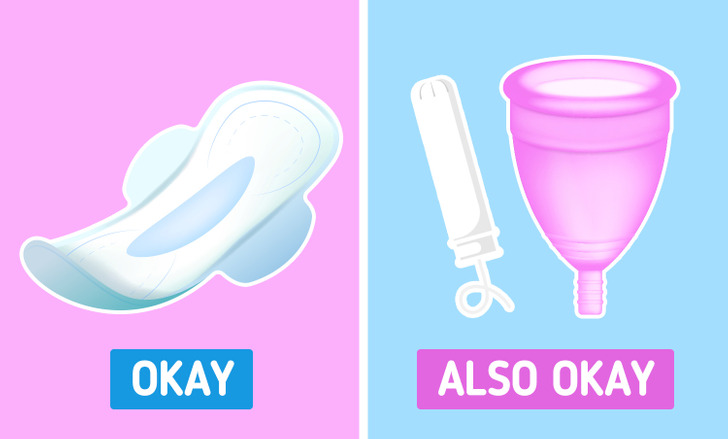5 Mistakes Many Parents Make When Their Daughter Gets Her First Period
Talking about menstruation can be awkward for parents and children, as it’s a very personal topic. However, giving your child reliable information can help them to understand how the human body works and make the appropriate choices for their health.
5-Minute Crafts has created this guide to help you figure out when and how to talk about periods.
❗Important: This article has been created for informative purposes only and does not replace medical advice.
5. You don’t know when to talk about periods.
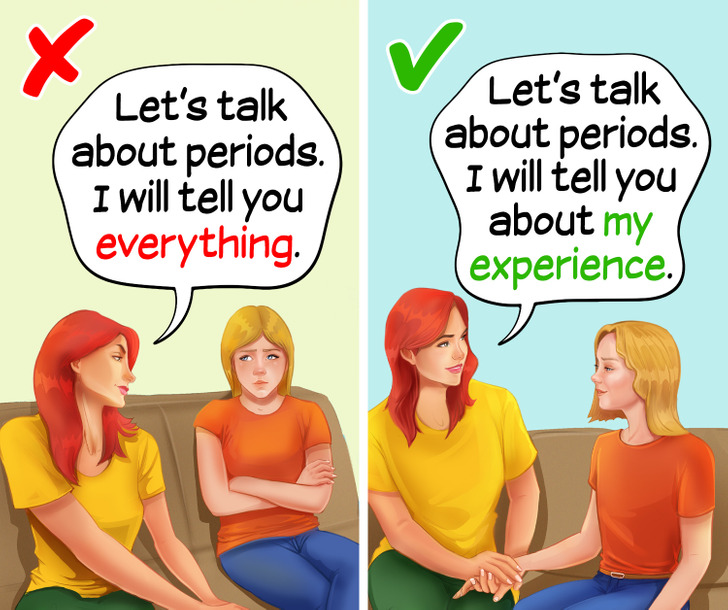
The earlier you start talking to your daughter or son about puberty and the related changes, the better. The best way to do it is through different conversations instead of one long talk. Slowly work on your child’s understanding and, over time, give them more information as they become ready for it.
If your child has shown no curiosity about menstruation, you can decide whether to begin talking about it or not. You can start by figuring out what your child already knows about puberty. Clarify anything that could sound like misinformation, ask them if they have any questions, and explain the basic concepts. Share what you have experienced and look into any sex education lessons your kid may be getting at school. If they seem resistant to discussing the topic, don’t stop trying.
- I was 11 and just moved to a new country. My mom was busy packing up at our old home and still hadn’t moved in with us yet. My dad found out and called to tell all of my relatives the big news. They all came over to my house one by one and congratulated me and gave me money and sweets. It was kind of embarrassing and I wanted to curl up and sleep instead of having to talk to 100 different relatives during that week. But at least I got money. © mlemyboi / Reddit
If they’ve started asking questions, be honest and open when answering them. Find a natural time to have the conversation, such as:
- When your child asks about body changes and puberty
- When your child asks about babies and where they come from
- When you’re buying pads or tampons at a store
💡Remember that your kid needs to understand the facts about puberty and menstruation, and their friends could be providing the wrong information. Discussing these topics with your child can prevent anxiety and fear as well as build the foundation for future conversations about the subject.
4. You don’t know what you should talk about.
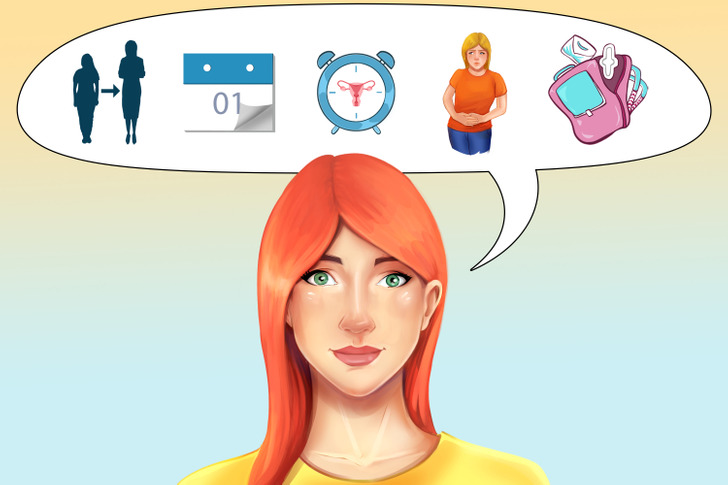
Even though the biological process of menstruation is very important, most children are curious about practical information. In other words, your child may be more interested in when it’s coming, what they’re going to feel, and what they should do when it’s finally here. In these scenarios, you can provide answers to the following questions.
- What’s menstruation? Menstruation indicates that a woman’s body is physically ready to become pregnant. In the menstrual cycle, estrogen levels increase during its first half, thickening the uterus lining. This thickened lining will maintain a fertilized egg or embryo if pregnancy happens. As the lining develops, an egg will begin to mature within one of the ovaries. On around the fourteenth day of a 28-day cycle, this egg will abandon the ovary, a process known as ovulation. The egg will travel to the uterus through one of the fallopian tubes. Pregnancy will happen if a sperm cell fertilizes the egg, and it will attach to the uterine wall. If the egg is not fertilized, it will break apart, the hormone levels will decrease, and the thickened lining of the uterus will shed through the woman’s private part, which is what we call a period.
- When will it happen? It’s not possible to say when exactly the first period will take place. However, menstruation usually begins around 2 years after a woman’s breasts start developing. Most girls have their first period when they’re between 10 and 15 years old, with 12 being the average age.
- How long will it last? The first few periods may be light with small spots of blood. Periods typically last between 3 and 5 days. However, periods that last from 2 to 7 days are also normal. Additionally, you can explain that even though periods usually occur once a month, some women may get it every 3 to 6 weeks.
- Will it hurt? There could be symptoms like abdominal or back cramps in lower areas, as well as breast tenderness, headaches, nausea, dizziness, and diarrhea. These can be relieved by heating pads, physical activity, and warm baths.
- What should I do when the time comes? Show your child how to use tampons, sanitary pads, and menstrual cups. Explain that these should be changed frequently — every 4-8 hours if she’s using tampons or pads, and every 8-12 hours for menstrual cups. Make sure to get different sanitary products and store them in the bathroom in advance. Motivate your child to find the most appropriate products for them.
- Will other people know what’s going on? Explain that menstrual cups, tampons, and pads are invisible through a person’s clothes. Encourage your daughter to keep the necessary supplies in her locker or backpack in case she has her first period while away from home.
3. You don’t explain that everybody is different.
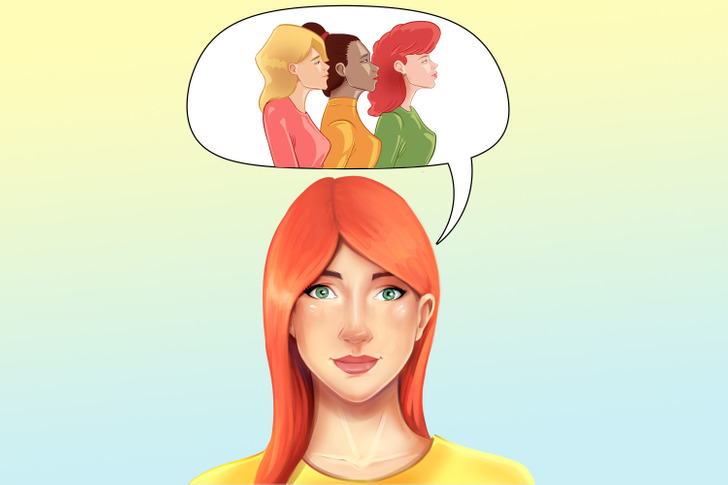
Remind your daughter that there’s nothing to worry about if her friends start menstruating or if they experience their periods differently. Explain that the menstruation process, including cycle length and flow, can vary from woman to woman and even month to month.
It’s also quite common for teenagers to have irregular cycles. Furthermore, it can take over 6 years after a woman’s period starts for her cycle to become steady. Although an average menstrual cycle is 28 days, it can go from 21 to 45 days in young teenagers, who may experience longer cycles after their menstruation has started.
💡You can teach your daughter how to track her period by using a calendar or an app, as this can help you identify menstrual disorders or other issues.
2. You don’t explain what to do if problems arise.
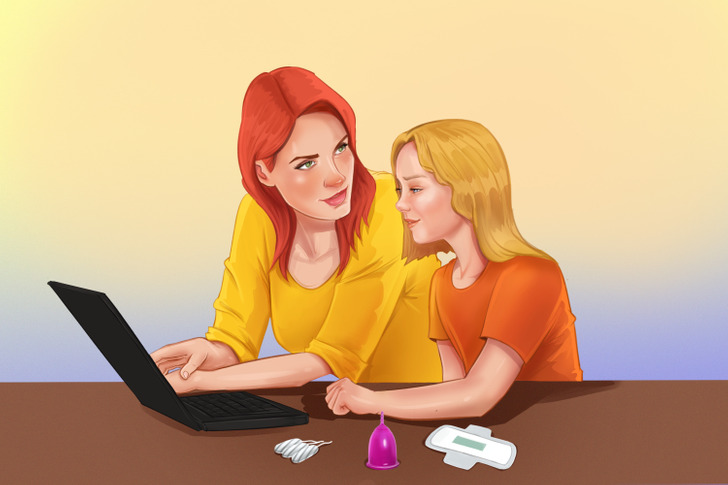
If you’re experiencing difficulties while talking about periods with your child, remember that you can always find another way to deliver this information. For instance, you can read a book or watch a video together to make things easier. At the same time, you can ask a doctor, school counselor, or family member to talk about this topic with your kid.
1. You don’t talk about sanitary products that are best for your child.
When choosing the appropriate sanitary product for your child, it’s essential that she feels comfortable with it. For instance, some girls start by using pads and then move on to tampons or a menstrual cup as they grow up. However, it’s not necessary to wait to use these products.
If your daughter opts for tampons, read the instructions on the package together. Your child may get annoyed by tampons at first, but explain to her that it will be much easier as she practices. Keep in mind that, in the beginning, tampons can be uncomfortable as the pelvis and other organs develop. So choose a thin applicator since it will be easier to use.
At the same time, menstrual cups can be complicated, but just like tampons, they become easier to use with practice. Even though your daughter may be irritated with the whole process, once the menstrual cup is inserted correctly, your child will be able to do her daily activities without any problems. Just make sure to carefully read the instructions on the package or the brand’s website.
